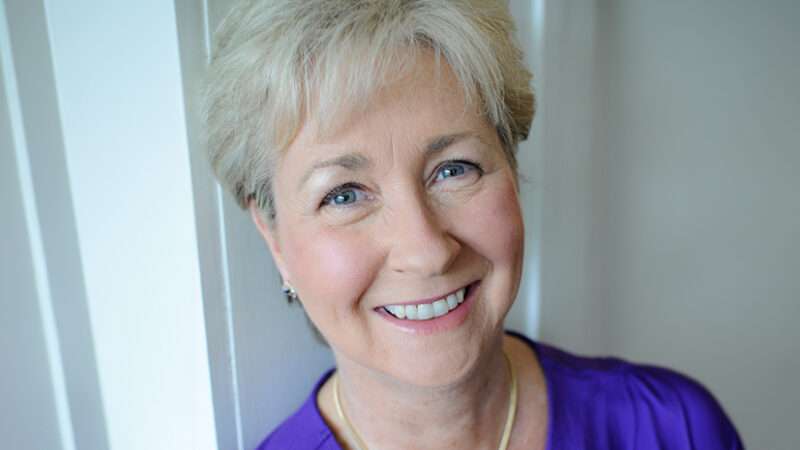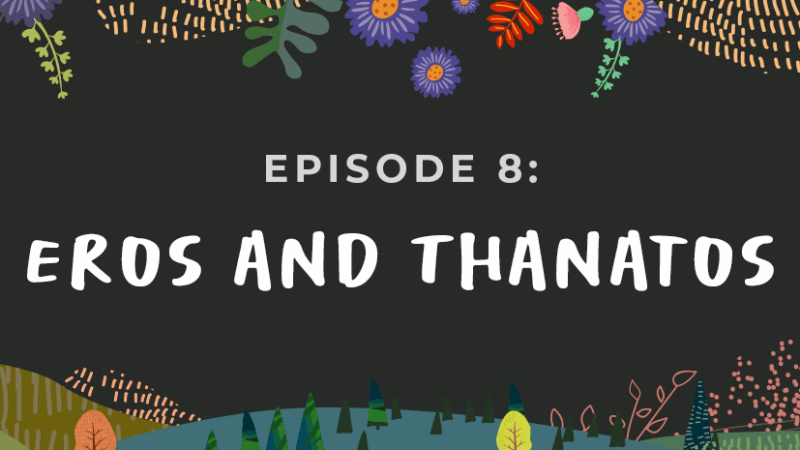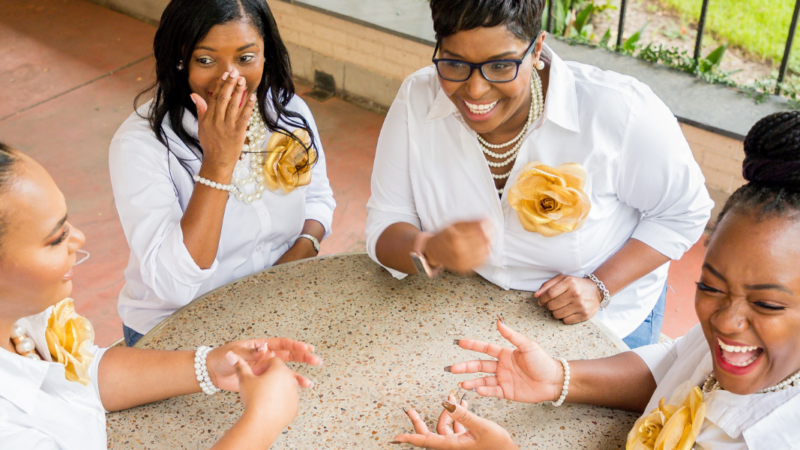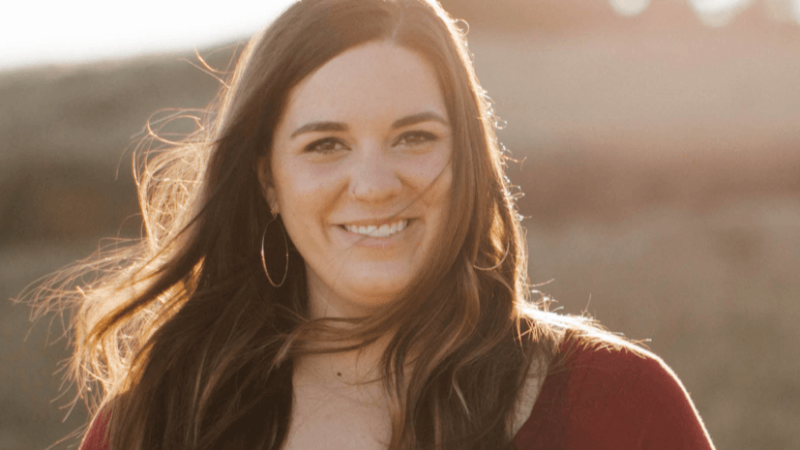-
E117: The Real Work: Letting Go from Within
Michael Singer — October 2, 2025
True spirituality isn’t about mystical experiences or lofty ideals—it’s about honestly facing...
-
Once More: Reflections on Reincarnation and the Gap Between Lives
Tami Simon — September 26, 2025
In this special reflection episode of Insights at the Edge host Tami Simon looks back on her...
-
Honey Tasting Meditation: Build Your Relationship with Sweetness
There is a saying that goes “hurt people hurt people.” I believe this to be true. We have been...
Written by:
Amy Burtaine, Michelle Cassandra Johnson
-
Many Voices, One Journey
The Sounds True Blog
Insights, reflections, and practices from Sounds True teachers, authors, staff, and more. Have a look—to find some inspiration and wisdom for uplifting your day.
Standing Together, and Stepping Up
Written By:
Tami Simon -
The Michael Singer Podcast
Your Highest Intention: Self-Realization
Michael Singer discusses intention—"perhaps the deepest thing we can talk about"—and the path to self-realization.
This Week:
E116: Doing the Best You Can: The Path to Liberation -
Many Voices, One Journey
The Sounds True Blog
Insights, reflections, and practices from Sounds True teachers, authors, staff, and more. Have a look—to find some inspiration and wisdom for uplifting your day.
Take Your Inner Child on Playdates
Written By:
Megan Sherer
600 Podcasts and Counting...
Subscribe to Insights at the Edge to hear all of Tami's interviews (transcripts available, too!), featuring Eckhart Tolle, Caroline Myss, Tara Brach, Jack Kornfield, Adyashanti, and many more.
Most Recent
Nanci Danison: Messages from Deep Afterlife Experience
Spiritual teacher and former attorney Nanci Danison has a truly amazing story. When she was 43 years old and a highly successful lawyer in health care, she had the first of a remarkable series of beyond-death experiences that completely altered her understanding of herself and her relationship with the divine. In her popular Backwards book series, Nanci writes about the empowering insights and lessons she learned through these fascinating events. In this podcast, Tami Simon speaks with the intriguing author and “messenger” about the wisdom she has been called to share at this time on Earth.
Settle in for a mind-blowing conversation on past-life memories and the nature of perception in realms beyond the physical, the phenomenon of the afterlife life review, a new perspective on what we call “Source,” unconditional love and unconditional acceptance, our dual nature as physical and non-physical beings, the Third Epoch of our planet and the evolution of humanity, the findings of NDE (near-death experience) research, our eternal friends in the non-physical dimension, the choices and commitments our souls make prior to human incarnation, and more.
Note: This episode originally aired on Sounds True One, where these special episodes of Insights at the Edge are available to watch live on video with exclusive access to Q&As with our guests. Learn more at join.soundstrue.com.
Ep 8: Eros and Thanatos
This episode explores the powerful role of Eros (sensual love) and Thanatos (death) in fueling our connection to the world as we contribute to the Great Turning. Joanna and Jess discuss how we might learn to see our world as our lover (and as our self), the gifts of cultivating a sensual connection with the world, and how facing mortality can make the gift of being alive feel even more precious. They also reflect on the closeness of Joanna’s own death, which Joanna sees as “going home” to rejoin the cycle of life.
In this episode:
- Using our love and awareness of impermanence as fuel for activism
- Discovering ways to truly feel interconnected with all life through sensual presence
- Reflections on mortality and our place in the cycle of life
We recommend starting a podcast club with friends or family to do these practices together. Links and assets to help prompt reflection and build community can be found with every episode on WeAreTheGreatTurning.com.
The Greatest Wealth Is Found When We Gather Together
When people ask for my personal secret to living a life that is authentically happy and liberating, the first thing that comes to mind are my friends. I’ve known for a long time that I am a wealthy and blessed person. The wealth that I’m referring to has nothing to do with my bank account balance. The wealth that I’m talking about are the meaningful connections that have sustained me over the years. What I lacked in familial bonds, the divine provided in long-term platonic relationships.
One of the clearest indicators of someone who is flourishing is their ability to build and keep meaningful connections and quality relationships. When designing a life that supports your becoming the most fully expressed version of yourself, the people who are closest to you can either support or hinder your progress. This is why I’m adamant about being intentional about my connections.
My “Presidential Cabinet,” which is basically what I call my trusted circle of friends, is filled with some amazing folks. I’m forever grateful for my community of friends that became family, strangers that became mentors, and colleagues that became accountability partners.
In the chapter “What About Your Friends?” from my book, Evolving While Black, I share with you that people who have strong relationships feel the support of family, friends, and others in their community. When you know you have a village of folks you can count on, it improves your ability to recover from stress, anxiety, and depression.
An agreement I made with myself in my early thirties was to commit to choosing connection and community over isolation. This decision is the gift that keeps on giving. The investment you make in choosing your connections is the greatest pathway to wholeness, prosperity, and longevity.
What you should consider as you’re continuing to build out your own Presidential Cabinet
Your connections should include people who:
- Energize you and help you to create a life of ease
- Encourage you to make your mental and emotional well-being a priority
- Consider you for opportunities when you’re not in the room
- Show mutual support and respect
Now that you know what to consider, use these prompts to create a plan
- Who’s in your Presidential Cabinet, and how do they support you?
- Who do you need to add, and how will they support your journey?
- If you change nothing, what will your life look like three months from now? How does this make you feel?
My hope for you is that you attract meaningful connections that bring you joy and make your heart smile, laughs that make your cheeks hurt, and love that covers you like a warm blanket. You deserve to feel loved, supported, and cared for.
Until we meet again.
Currently evolving,
Chianti
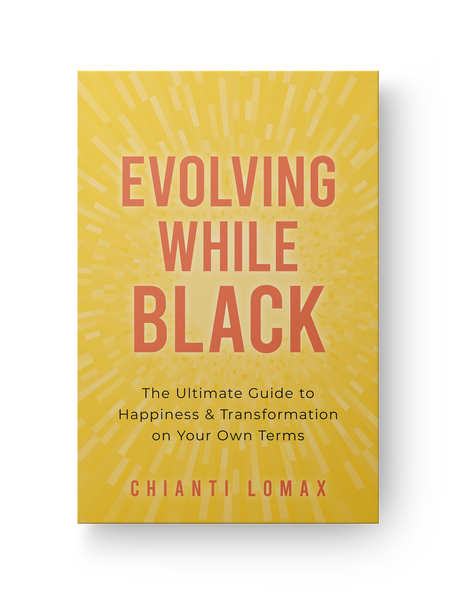
Evolving While Black
Amazon | Barnes & Noble | Bookshop | Sounds True
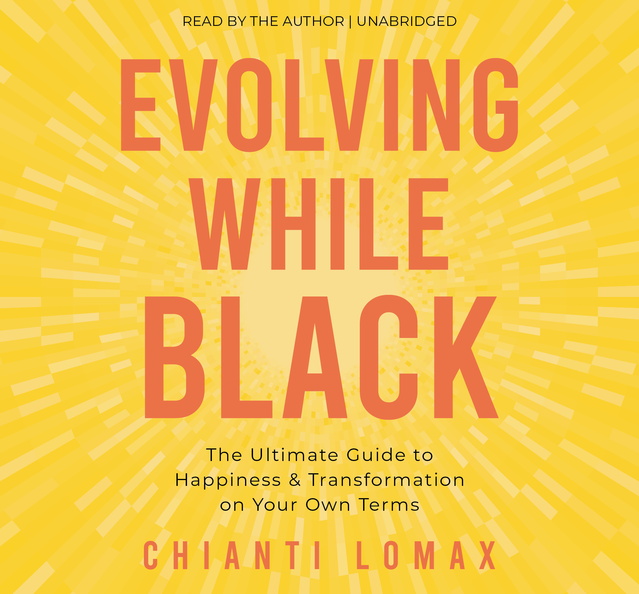
Evolving While Black
Sounds True
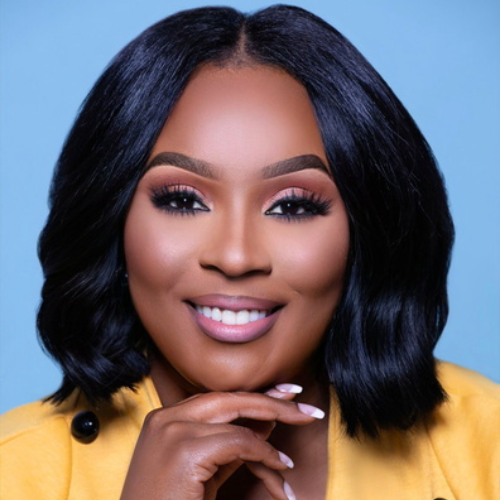
Chianti Lomax is a sought-after international speaker, certified mindset coach, and leadership trainer who thrives at the intersection of mindfulness, technology, and transformative coaching. As a registered yoga instructor, certified personal and executive coach, certified workplace mindfulness facilitator, and positive psychology practitioner, Chianti teaches doable habit changes to help increase our well-being and elevate the overall human experience. For more, visit chiantilomax.com.
Author photo © Ambreia Williams
Customer Favorites
David Whyte: Being at the Frontier of Your Identity
Tami Simon speaks with David Whyte, a passionate speaker, poet, and author of four Sounds True audio programs, including Clear Mind, Wild Heart and What to Remember When Waking: The Disciplines of an Everyday Life. In this rebroadcast of one of the most popular Insights at the Edge interviews, Tami speaks with David about how each of our lives unfolds as a great conversation with reality, which is the source of originality. David also shares some of his poetry, and explores how our innate sense of exile is actually a core human competency, how vulnerability enhances our perception, and what it might mean to tap into the invisible support that is always available to us. (61 minutes)
Megan Devine: The Howl at the Center of Grief
Megan Devine is a mental health counselor who has become known as one of the most promising emerging voices in the field of grief therapy. With Sounds True, she has released the new book It’s OK That You’re Not OK: Meeting Grief and Loss in a Culture That Doesn’t Understand. In this episode of Insights at the Edge, Tami speaks with Megan about It’s OK That You’re Not OK and the tragedy that inspired the book—the accidental drowning of her partner. With this in mind, Tami and Megan discuss “the wild howl at the center of grief,” the challenge of shouldering things that only we can carry, and why “letting go” is a myth. They also talk about what you can do for someone enduring the grieving process and why it can be best simply to lend an understanding ear. Finally, Megan unravels the concept of “fixing” grief and why there is an intrinsic connection between grieving fully and loving well. (69 minutes)
What We Long For
Becca Piastrelli is a writer, speaker, ancestral folk medicine keeper, and women’s group facilitator. She is a leader in women’s empowerment and earth wisdom, teaching women how to cultivate a greater sense of belonging. With Sounds True, she has authored the book Root and Ritual. In this podcast, Becca joins Tami Simon to discuss the lifelong journey of reclaiming our sense of belonging, with a particular focus on four areas: land, lineage, community, and self. Becca and Tami also explore the concept of loneliness as both a personal and a systemic challenge, humbling ourselves to the natural world, confronting the pain and grief of colonization, listening to the soul of your home, healing the “great severing” of our root systems, the Indigenous concept of the “ever happening” and receiving the support of our ancestors, the somatic experience of ritual, the importance of being witnessed in our journey of transformation, and much more.

